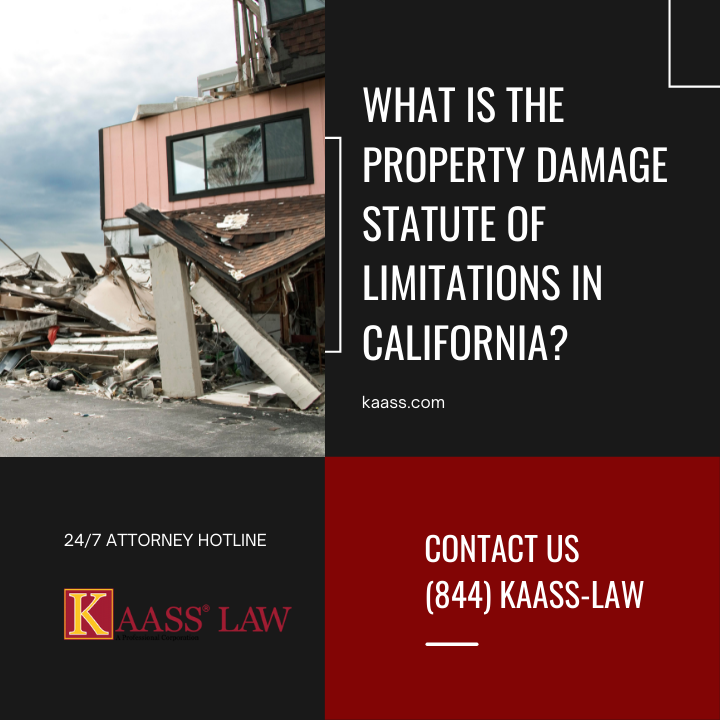There are two types of property damage:
- Damage to real property (Ex: Buildings/Land)
- Damage to personal property (Ex: Vehicle)
The California Code of Civil Procedure Section 338
Section 338 of the California Code of Civil Procedure establishes a three-year limit for:
- “An action for trespass upon or injury to real property”. For example, someone unlawfully enters your property and/or damages your home, another structure, or physical land.
- “An action for taking, detaining, or harming goods or chattels”. For example, any form of property that isn’t recognized as real property, such as vehicles, furniture, and jewelry.
This three-year limit applies whether your claim is part of a broader legal action or a standalone lawsuit.
If You Miss the Deadline for Filing
If you file your California property damage lawsuit after the three-year deadline has expired, the defendant will almost always file a motion requesting the court to dismiss the case, unless an exception applies.
Exceptions to Property Damages Statute of Limitations
A number of circumstances in a California property damage lawsuit — and most other types of civil actions, for that matter — could cause the statute of limitations to pause (“toll” in legalese) or prolong the time for filing the claim. These are some of them:
- If the defendant (the person you’re suing) was (or is) out of state for any part of the three-year period beginning with the date the property damage occurred.
- If you were under the age of 18 or not at the age to make legal decisions (see, California Code of Civil Procedure section 352).
Glendale Attorney
There may be more exceptions to the California statute of limitations time restriction that are too numerous (and complex) to detail here. If your property damage lawsuit’s three-year deadline has passed and you believe one of these exceptions applies to your case, speak with an experienced attorney to learn about your alternatives and defend your rights. Call KAASS Law firm now at 310-943-1171 today.


Pingback:What is the California Law for Construction Lawsuits?